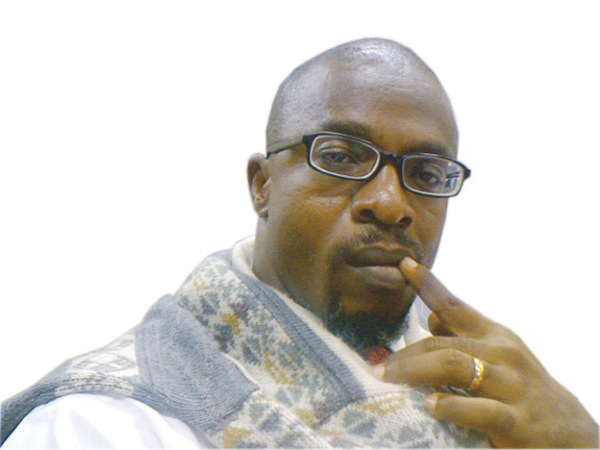Ethics as a concept for study is deceptively simple. Buju Banton – Jamaican dancehall, ragga, and reggae singer – in his 1997 track, “Destiny”, put the matter tersely: “There was good and evil/We chose good”. On the strength of this reading, all conduct may therefore be considered ethical that prioritises “good” over “evil”. Even this understanding takes place within a very narrow construction of the concept, however, and this is the point of all scripture – in addition, that is, to the rewards that a generous deity offers those who genuinely trust and obey. More broadly, though, there are few ideas more convoluted than those that one grapples with when one tries to take on a debate on ethics. After all, “good” and “evil”, to begin with, are not in themselves absolute ideas.
Whether the process is thought of as paralleling mankind’s evolution or simply conceived as describing the period since the precepts of the Abrahamic religions were handed down to humanity, the values that comprise good and evil have changed considerably – and are still changing as have the communities in which they have been put to work. Evidently what was “good” for human communities as “gatherers” would not do for when the same community transitions to hunting and would be still less useful in large modern conurbations. A community of cannibals, consequently, would struggle with the moral code of an abstemious community of religious votaries.
But that is not all. If both good and evil are relative constructs, where does this leave ethics? Dependent on cultural, societal, or individual perspectives – in which case it changes as a people’s forms of social interactions and how these are expressed change? Or the result of universal standards – is there an ethic (constructed around “universal human values”, for instance) that is valid for all humans, if not for all time? Whichever way you phrase them, both these questions are readily answered. Many acceptable social and cultural practices today were verboten yesterday. And a lot of today’s sacral practices will be tomorrow’s sacrileges.
Increasingly, the test of acceptable behaviour is that the externalities which it produces do not impose a cost on society far more than it benefits the individual engaged in such behaviour. And private conduct is less frowned upon than public conduct. Even within this description of the ethical space, are actions ethical only if they lead to the greatest good for the greatest number? Maybe. But again, thus framed, the problem with the definition of good is still unresolved. Why can ethics, therefore, not be based on following rules, duties, or moral principles, regardless of outcomes. Especially when these rules are laid down by an omniscient, omnipresent deity? In which case believers in a benevolent God are required to cultivate good character traits, such as courage and compassion.
If consideration of ethics as consequential values, as virtue, as relative constructs, as care, etc. is this involved, ethical dilemmas are worse. In Nigeria, especially so. How does a young Nigerian, persuaded that the offering and acceptance of bribes is unethical manage her values on her first job, after the NYSC programme? Not too long ago, it was okay to leave a crucifix or Quran in a visible and accessible spot on one’s desk as a mark of virtue. But that was before even Christian ethics, for one, shifted, and a bribe, especially of substantial sums of money came to be construable as evidence of God’s munificence. And what to do where one’s entire department is on the take and prone to offer bribes? Whistleblow? But not when the last set of non-staff to be suborned in that office was a set of inspectors from the regulator.
And where the preference of one’s bosses is for “Yes, sir! Yes, sir!! Three bags full”-type subordinates? In these cases, to cleave to principles of an ethical variety invariably involves the risk of being passed over in several promotion cycles, and the forfeiture of the yearly bonus. Still, our society throws up myriad other ethical dilemmas as a regular feature of its functioning. It is easy to frame the ethical challenge faced by a place such as Nigeria’s in economic terms.
Accordingly, the policy goal would be to ensure that every naira invested in strengthening the domestic value space returns (on average) multiple naira in economic gains. In the end, however, at the nub of the discourse on ethics is the fact that decisions on what to do fall to individuals to make, while communities (“peer pressure”, tyranny of the majority”, etc.) invent ethical dilemmas. There is a problem if the cost to the individual of being ethical is far greater than the benefits to his community. As is the case when the gains to the individual from being corrupt exceeds the immediately apparent costs to society.
Uddin Ifeanyi, journalist manqué and retired civil servant, can be reached @IfeanyiUddin.
Support PREMIUM TIMES’ journalism of integrity and credibility
At Premium Times, we firmly believe in the importance of high-quality journalism. Recognizing that not everyone can afford costly news subscriptions, we are dedicated to delivering meticulously researched, fact-checked news that remains freely accessible to all.
Whether you turn to Premium Times for daily updates, in-depth investigations into pressing national issues, or entertaining trending stories, we value your readership.
It’s essential to acknowledge that news production incurs expenses, and we take pride in never placing our stories behind a prohibitive paywall.
Would you consider supporting us with a modest contribution on a monthly basis to help maintain our commitment to free, accessible news?
TEXT AD: Call Willie – +2348098788999




